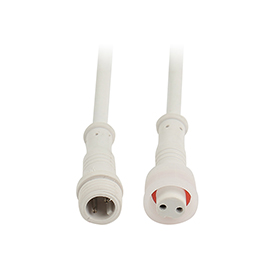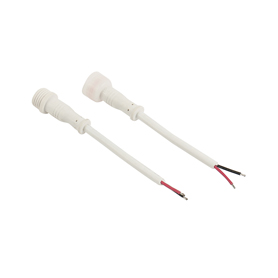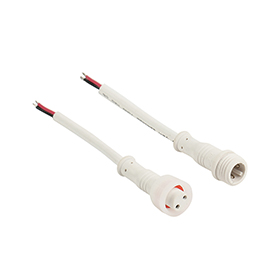News


News

Waterproof Wire for Automobiles: Selection Criteria for Optimal Performance
Release time:2025-03-20
viewed:400
In the automotive industry, electrical systems are the backbone of modern vehicles, powering everything from engine control units to infotainment systems. However, these systems are often exposed to harsh environments, including water, dust, and extreme temperatures. To ensure reliability and safety, waterproof wire for automobiles has become an essential component.

Automotive electrical systems face numerous challenges:
Water Exposure: Rain, car washes, and flooded roads can lead to water ingress.
Temperature Extremes: Engine compartments can reach high temperatures, while external wiring may face freezing conditions.
Vibration and Mechanical Stress: Constant movement and road vibrations can damage unprotected wires.
Chemical Exposure: Oil, fuel, and cleaning agents can degrade standard wiring.
Waterproof wire for automobiles is designed to withstand these challenges, ensuring reliable electrical connections and preventing short circuits, corrosion, and system failures.
The insulation material is the first line of defense against water and environmental hazards. Common materials include:
Cross-Linked Polyethylene (XLPE): Excellent resistance to water, heat, and chemicals.
Silicone Rubber: Highly flexible and resistant to extreme temperatures (-50°C to 200°C).
Fluoropolymers (e.g., PTFE): Superior chemical resistance and durability.
Tip: For high-temperature environments like engine compartments, silicone rubber is often the best choice.
The outer jacket provides additional protection against abrasion, UV exposure, and mechanical stress. Popular options include:
Polyvinyl Chloride (PVC): Cost-effective and resistant to water and abrasion.
Thermoplastic Elastomers (TPE): Flexible, durable, and resistant to oils and fuels.
Polyurethane (PUR): Highly resistant to abrasion and chemicals, ideal for harsh environments.
Tip: For off-road vehicles or heavy-duty applications, PUR jackets are recommended due to their superior durability.
The IP (Ingress Protection) rating indicates the wire's ability to resist water and dust ingress. Common ratings for automotive applications include:
IP67: Protected against temporary immersion in water (up to 1 meter for 30 minutes).
IP68: Protected against continuous immersion in water (depth and duration specified by the manufacturer).
IP69K: Resistant to high-pressure, high-temperature water jets.
Tip: For underbody wiring or areas prone to submersion, choose wires with an IP68 or IP69K rating.
Automotive wires must operate reliably across a wide temperature range:
Low-Temperature Performance: Ensure the wire remains flexible in freezing conditions.
High-Temperature Performance: Ensure the wire does not degrade in high-heat areas like engine compartments.
Tip: Check the wire's temperature rating to match the specific application (e.g., -40°C to 125°C for most automotive uses).
The conductor material and gauge determine the wire's current-carrying capacity and durability:
Copper: High conductivity and flexibility, ideal for most automotive applications.
Tinned Copper: Enhanced corrosion resistance, suitable for high-humidity environments.
Gauge (AWG): Choose the appropriate gauge based on the current load (e.g., 16 AWG for low-current signals, 8 AWG for high-current applications like battery cables).
Tip: For marine or off-road vehicles, tinned copper is recommended to prevent corrosion.
Automotive wiring often requires tight bends and routing through confined spaces. Ensure the wire is flexible enough to handle these demands without cracking or breaking.
Tip: Silicone-insulated wires are highly flexible and ideal for complex routing.
Ensure the wire complies with industry standards and certifications, such as:
SAE J1128: Standard for low-voltage primary cable.
ISO 6722: Standard for road vehicle cables.
UL/CSA: Safety certifications for electrical wiring.
Tip: Always verify that the wire meets the specific requirements of your vehicle and application.

Engine Compartment: High-temperature, waterproof wires for sensors, ignition systems, and alternators.
Underbody Wiring: High-durability, abrasion-resistant wires for ABS systems and fuel pumps.
Exterior Lighting: Waterproof wires for headlights, taillights, and fog lights.
Interior Electronics: Flexible, low-voltage wires for infotainment systems and dashboard controls.
Proper Routing: Avoid sharp edges and high-heat areas when routing wires.
Secure Connections: Use waterproof connectors and heat shrink tubing to seal connections.
Regular Inspections: Check for signs of wear, corrosion, or damage, especially after off-road or extreme weather conditions.

Lightweight Materials: Development of lighter wires to improve fuel efficiency in electric vehicles.
Smart Wires: Integration of sensors to monitor wire health and detect faults.
Eco-Friendly Options: Use of recyclable and biodegradable materials in wire manufacturing.
Choosing the right waterproof wire for automobiles is critical to ensuring the reliability, safety, and longevity of your vehicle's electrical systems. By considering factors such as insulation material, IP rating, temperature range, and certifications, you can select wires that meet the demands of even the harshest environments. Whether you're driving through a rainstorm, crossing a river, or navigating a dusty trail, waterproof wire provides the protection your vehicle needs to keep moving forward.